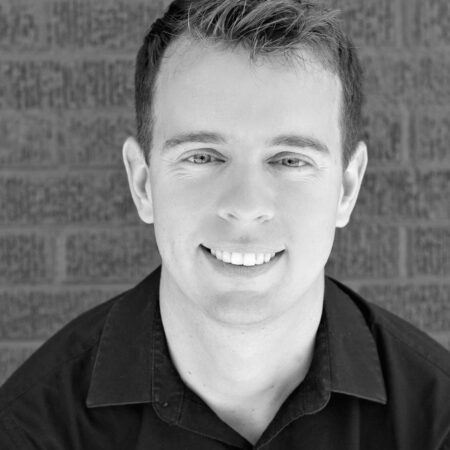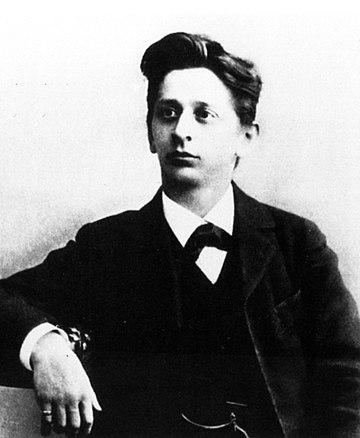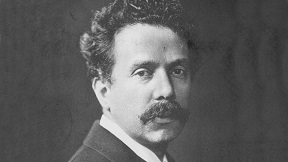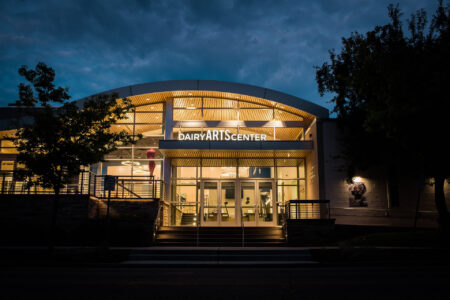“Mahler’s Contemporaries” – Chamber Music at the Dairy*
Tuesday, August 24, 2021 | 7PM| $5-22
Dairy Arts Center, 2590 Walnut Street, Boulder
Masks are required at all indoor events.
- ZEMLINKSY Sonata for Cello and Piano (1894)
- KORNGOLD Suite from “Much Ado about Nothing,” Op. 11, for Violin and Piano (1919)
- KAHN Trio for Piano, Clarinet, and Cello (1905)
 Kellan Toohey – clarinet
Kellan Toohey – clarinet
Jessica Mathaes – violin
Parry Karp – cello
Jennifer Hayghe – piano
Composers

Zemlinsky c. 1900
Alexander Zemlinksy (1871-1942) was born in Vienna in 1871. His Sonata for Cello and Piano was composed in 1894, just ten years after he was admitted to the Vienna Conservatory and four years after winning the school’s piano prize. By this time, Zemlinsky was known to Johannes Brahms, who recommended Zemlinsky’s Clarinet Trio for publication. A year after composing the Sonata, he founded Polyhymnia, an amateur orchestra that included Arnold Schoenberg as a cellist. The two became friends and later brothers-in-law when Schoenberg married Zemlinsky’s sister.
It was later, in 1900, that Zemlinsky met and fell in love with Alma Schindler, one of his composition students at the time. The feelings were mutual, but Alma broke off the relationship under pressure from her friends and family. Of course, in 1902, she married Gustav Maher.
MahlerFest regulars will remember Zoë Beyers’s fantastic performance of Erich Korngold’s Violin Concerto at MahlerFest XXXI. Korngold (1897-1957) was a child prodigy. At the age of 11, his ballet The Snowman was a sensation in Vienna. In 1909, Korngold played his cantata, Gold, for Mahler, who called him a “musical genius” and sent him to Zemlinksy to study composition. Mahler and Richard Strauss both told Korngold’s father not to bother enrolling him in a conservatory because of his advanced skill. Korngold moved to the United States in 1934, writing film scores and winning Oscars for Anthony Adverse (1936) and The Adventures of Robin Hood (1938).

Robert Kahn
Like Zemlinksy, Robert Kahn (1865-1951) also became friendly with Brahms, who offered to take him as a student, though Kahn declined. He had a successful career as composer and pianist after early support from Brahms and Clara Schumann. He taught at the Prussian Academy of Arts from 1916 until 1934, when he was forced to resign because he was Jewish. The Nazis also banned the performance and publication of his music. In 1938, he moved to England and lived the rest of his life in relative obscurity. Recently, Kahn’s music has been rediscovered, along with the music of many other composers who were silenced by the Nazis. His Diary of Sounds journal contained 1160 piano miniatures, about 30 hours of music.
What to Expect

The Dairy Arts Center is actually a converted dairy processing plant that houses performance and practice space, as well as the offices of many nonprofits. This concert will be held in the largest space, the Gordon Gamm Theater, which seats about 250 people. There is a comfortable lobby where you can grab a small snack or a drink before the show. The musicians will be available to chat in the lobby following the performance, and the bar should be open as well. There is a parking lot behind the Dairy and lots of street parking in front and on neighboring streets, all of it free (please pay attention to the street signs!). As with almost all of our concerts, you are welcome to come as dressed up or down as you please. Even fancy outings in Boulder often include Birkenstocks and shorts, especially in August.
* All programing and artists subject to change
